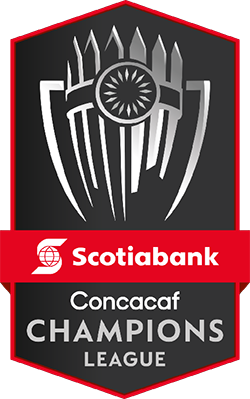CONCACAF Champions League
The CONCACAF Champions League is an annual continental club football competition organized by CONCACAF.

The CONCACAF Champions League is an annual continental club football competition organized by CONCACAF.

The CONCACAF Champions League, known officially as the Scotiabank CONCACAF Champions League for sponsorship reasons, is an annual continental club football competition organized by CONCACAF. The winner of the CONCACAF Champions League automatically qualifies for the quarter-finals of the FIFA Club World Cup. The competition has been completed 56 times through the 2021 event, with 58 champions, due to a three-way share title in the 1978 competition. The tournament currently uses a knockout format; it had a group stage prior to the 2018 competition. Unlike its European and South American counterparts, the winner of the CONCACAF Champions League does not automatically qualify for the following season’s competition.
The CONCACAF Champions League was founded in 1962, 60 years ago. The tournament has been rebranded in 2008. When it was first organized in 1962, the competition was called the CONCACAF Champions Cup. The title has been won by 28 clubs, 13 of which have won the title more than once. Mexican clubs have accumulated the highest number of victories, with 36 titles in total. The second most successful league has been Costa Rica’s Primera División, with six titles in total. Mexican side Club América are the most successful club in the competition’s history, with seven titles, followed by fellow Mexican side Cruz Azul with six titles. The most successful non-Mexican club is Saprissa of Costa Rica, with three titles. The only four teams to successfully defend the trophy are all Mexican: América, Cruz Azul, Pachuca and Monterrey. The current champions of the competition are Monterrey, who defeated América in the 2021 final.
The tournament employs a 16-team knockout format and is played between February and May. Ten teams qualify automatically based on domestic performance, along with the top six teams (champion, runner-up, two losing semi-finalists, and two best losing quarter-finalists) of the CONCACAF League, played at the end of the previous calendar year. Each round of competition consists of a two-leg home-and-away series with the winner determined by aggregate goals over both legs. If aggregate goals are equal, the away goals rule is applied. If away goals are also equal, the game is decided by an immediate penalty shoot-out; there are no overtime periods.
The competition was initially created as a possible measure to enter the South American Copa Libertadores, a competition organized by CONMEBOL. Prior to 2008, the tournament was officially called the “CONCACAF Champions’ Cup”, but was usually referred to simply as the “Champions’ Cup”. The competition has had several different formats over its lifetime. From 1962 until 1995, the finalists, or clubs that participated in a final round, would be decided by clubs that qualify via two separate brackets: a Caribbean Island qualifier and a Northern/Central American qualification competition. Initially, only the champions of the North American leagues participated. In 1971, the runners-up of a few North American leagues began to join and the tournament began to be expanded, incorporating round-robin group phases and more teams. After the creation of the United States’ Major League Soccer, the competition became a straight knockout competition from 1997 until it was revamped into a tournament with a group a stage in 2008.